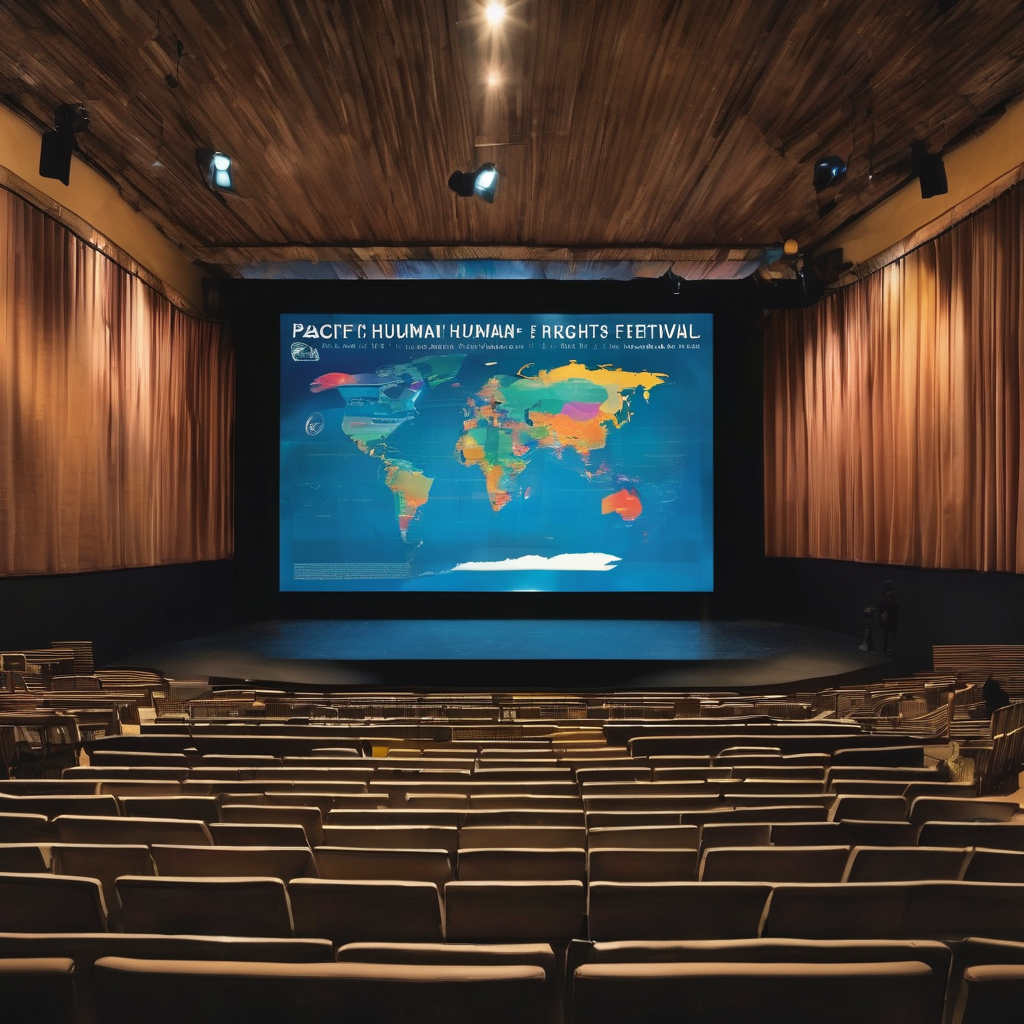The fifth Pacific Human Rights Film Festival has made a significant impact across the Pacific, uniting over 3,000 attendees under its compelling theme of Loss, Damage, Resilience, and Restoration. The festival’s objective was to raise awareness of pressing human rights issues, inspiring a more just and compassionate society.
Kicking off with the Oceanic Refractions art installation, the festival featured screenings for students from 10 secondary schools in Suva, as well as participants from the University of the South Pacific (USP), Fiji National University, and the University of Fiji. The event ran for five days, with screenings facilitated by the Ministry of Education, ensuring that human rights topics were brought directly into academic environments.
The festival presented films covering critical topics, including the threats posed by climate change, inter-generational trauma, the marginalization of traditional Pacific identities, and the effects of war. To foster deeper understanding and reflection, post-screening discussions provided audiences a platform to engage with experts, human rights advocates, and film crews.
Miles Young, the director of the Human Rights and Social Development division at the Secretariat of the Pacific Community (SPC), expressed his optimism about the enthusiastic engagement amidst viewers. “The discussions that followed the films were respectful, thought-provoking, and insightful,” Young noted, highlighting the diverse perspectives on various human rights issues raised during the festival. His remarks were echoed by Heike Alfenson, the regional representative for the Office of the UN High Commissioner for Human Rights (OHCHR), who reminded attendees that the struggle for human rights is ongoing. “Selected films showcased how courage, creativity, and conviction can help build a more just and equitable future,” she affirmed.
New Zealand’s High Commissioner Charlotte Darlow reiterated her country’s commitment to human rights and gender equality through their partnership with the festival.
Collaboration has been at the heart of the festival’s inception, involving various bodies such as the SPC, USP, the Delegation of the European Union to the Pacific, Film Fiji, and the New Zealand Ministry of Foreign Affairs and Trade. By merging traditional cinema with contemporary social issues, the festival effectively transformed viewing experiences into a dynamic learning environment.
The encouraging turnout and engaging dialogues at the Pacific Human Rights Film Festival reflect a growing awareness and a collective call for action on human rights within the region. As the festival continues to shine a spotlight on essential issues, it holds promise for fostering a more empathetic and informed society across the Pacific.
